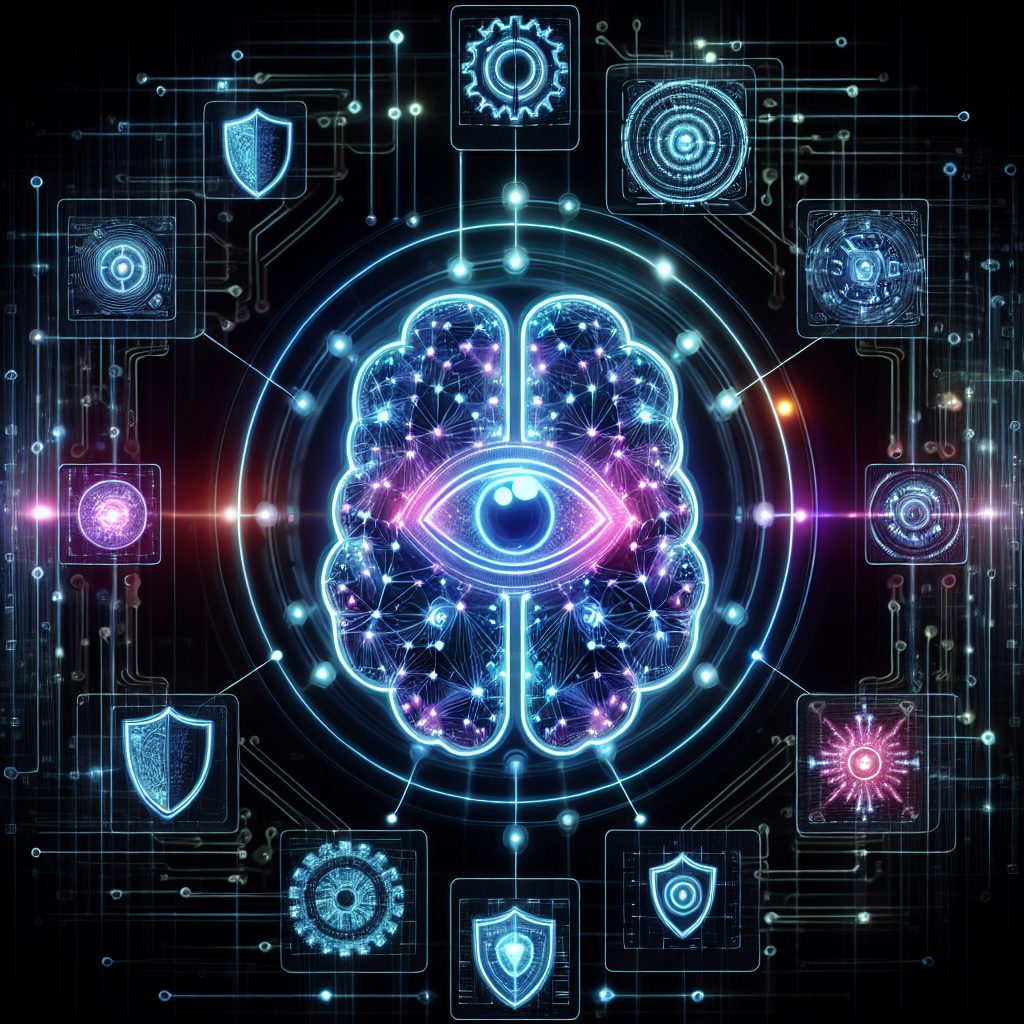In today’s digital age, the importance of cybersecurity cannot be overstated. With the increasing sophistication of cyber threats, organizations need to constantly adapt and improve their defense mechanisms to protect their sensitive data and systems. This is where artificial intelligence (AI) comes into play, revolutionizing the way cybersecurity is approached and making it more effective than ever before.
AI has the potential to transform cybersecurity defense by enabling organizations to predict, prevent, detect, and respond to cyber threats in real-time. By leveraging machine learning algorithms, AI can analyze vast amounts of data to identify patterns and anomalies that may indicate a potential security breach. This proactive approach to cybersecurity allows organizations to stay one step ahead of cybercriminals and mitigate risks before they escalate.
One of the key advantages of AI in cybersecurity is its ability to automate routine tasks that would otherwise be time-consuming and error-prone if done manually. This includes tasks such as monitoring network traffic, analyzing log files, and identifying vulnerabilities in software. By automating these processes, AI can free up cybersecurity professionals to focus on more strategic tasks and make faster and more informed decisions in response to cyber threats.
Another important role of AI in cybersecurity is its ability to adapt and learn from new threats. Traditional cybersecurity tools rely on predefined rules and signatures to detect and prevent attacks, making them less effective against new and evolving threats. AI, on the other hand, can continuously learn from new data and update its algorithms to stay ahead of cybercriminals. This adaptive approach to cybersecurity defense is crucial in today’s fast-paced and constantly evolving threat landscape.
AI can also enhance threat detection and response capabilities by providing organizations with real-time insights into potential security incidents. By analyzing data from multiple sources, including network traffic, endpoint devices, and user behavior, AI can quickly identify suspicious activities and alert cybersecurity teams to take action. This early detection and response can help organizations minimize the impact of a cyber attack and prevent sensitive data from being compromised.
In addition to threat detection, AI can also play a key role in incident response by automating the containment and remediation of security incidents. By leveraging AI-powered tools, organizations can quickly isolate infected systems, block malicious traffic, and remove malware from compromised devices. This rapid response can help organizations contain the spread of cyber threats and minimize the damage caused by a security incident.
Overall, the role of artificial intelligence in revolutionizing cybersecurity defense cannot be understated. By leveraging AI-powered tools and technologies, organizations can enhance their threat detection and response capabilities, automate routine cybersecurity tasks, and stay ahead of evolving cyber threats. As the cybersecurity landscape continues to evolve, AI will play an increasingly important role in helping organizations protect their sensitive data and systems from cyber attacks.
FAQs:
1. How does AI improve cybersecurity defense?
AI improves cybersecurity defense by enabling organizations to predict, prevent, detect, and respond to cyber threats in real-time. By leveraging machine learning algorithms, AI can analyze vast amounts of data to identify patterns and anomalies that may indicate a potential security breach. This proactive approach to cybersecurity allows organizations to stay one step ahead of cybercriminals and mitigate risks before they escalate.
2. What are the advantages of using AI in cybersecurity?
Some of the key advantages of using AI in cybersecurity include automating routine tasks, adapting and learning from new threats, enhancing threat detection and response capabilities, and improving incident response. AI can automate tasks such as monitoring network traffic, analyzing log files, and identifying vulnerabilities in software, freeing up cybersecurity professionals to focus on more strategic tasks. AI can also continuously learn from new data and update its algorithms to stay ahead of cybercriminals, providing organizations with real-time insights into potential security incidents and automating the containment and remediation of security incidents.
3. How can organizations leverage AI for cybersecurity defense?
Organizations can leverage AI for cybersecurity defense by implementing AI-powered tools and technologies that can enhance their threat detection and response capabilities. These tools can analyze data from multiple sources, including network traffic, endpoint devices, and user behavior, to quickly identify suspicious activities and alert cybersecurity teams to take action. By automating routine cybersecurity tasks and providing real-time insights into potential security incidents, AI can help organizations stay ahead of evolving cyber threats and protect their sensitive data and systems from cyber attacks.
4. What are some examples of AI-powered cybersecurity tools?
Some examples of AI-powered cybersecurity tools include threat intelligence platforms, security analytics solutions, and automated incident response systems. These tools leverage machine learning algorithms to analyze data, detect anomalies, and identify potential security threats in real-time. By automating routine cybersecurity tasks and providing organizations with real-time insights into potential security incidents, these tools can help organizations enhance their threat detection and response capabilities and stay ahead of evolving cyber threats.

